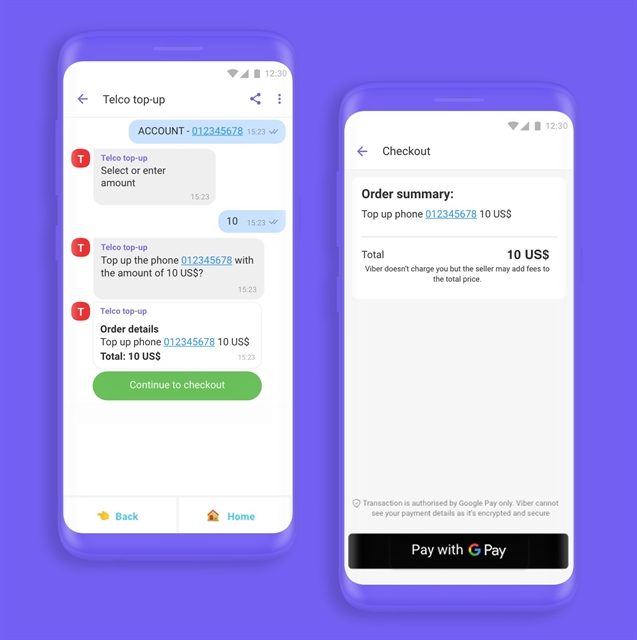 Economy
Economy


|
| A proposed chatbot payment feature on Viber is set to mark the company’s entry into fintech. — VNS Photo |
HCM CITY — Rakuten Viber has announced its expansion into fintech with the proposed launch of a new chatbot payments feature with which users can pay using Google Pay and other mobile wallets.
It marks a milestone in its expansion beyond messaging, as the company develops an end-to-end platform catering to all its users’ needs.
It is working with bot developers and payment service providers, and Ukraine will be the first market where it will be rolled out.
After Ukraine, the company plans to launch the payments feature in other markets early next year, including Việt Nam and the rest of the Asia Pacific.
Viber said as messaging and social platforms develop, users are beginning to express a demand for additional features that go beyond emojis, gifs and video calls.
As long ago as in 2017, 64 per cent of millennials expressed interest in peer to peer transfer solutions on messaging apps. That number has only grown since, and the pandemic has accelerated the need for solutions to do just about everything remotely.
The payments feature will enable users to buy from merchants through their authorised chatbots. If the user’s bank supports it, they needs to add a credit or debit card to their native smartphone wallet, and the payment option becomes available for any chatbot built on Viber’s native chatbot application programming interface.
Businesses seeking to accept payments simply connect to a payment service provider supporting this type of payments, create a chatbot on Viber, and enable payments on it.
“We’re thrilled to move Viber beyond messaging and position ourselves on the global stage as an end-to-end platform that actually values its users as people, not ad targets,” Djamel Agaoua, the company’s CEO, said. — VNS